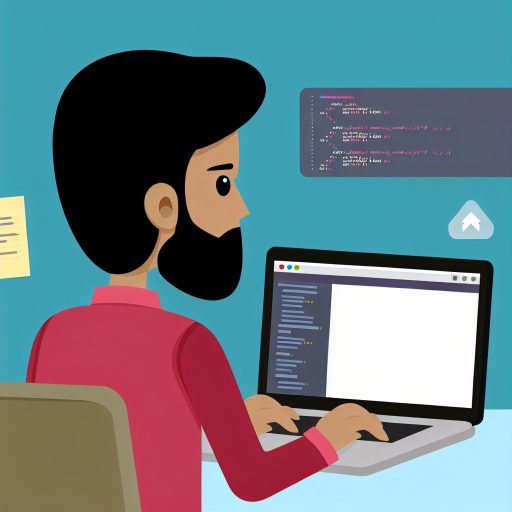Open Source Projects as Learning Tools
Introduction to Open Source Projects
Open source projects allow anyone to view the source code.
They also let people use and modify the source code.
This model fosters collaboration and innovation among diverse communities.
Individuals can contribute to projects.
They gain valuable experience along the way.
Benefits of Learning Through Open Source
One major advantage is hands-on experience in real-world applications.
Contributors learn coding languages, best practices, and frameworks.
They often receive immediate feedback from experienced developers.
This interaction enhances understanding and accelerates skill development.
Community Engagement and Support
Open source projects have thriving communities that offer encouragement.
Engaging with peers improves problem-solving abilities and boosts confidence.
Participants can network with industry professionals.
This networking often leads to job offers or potential collaborations.
Accessible Learning for All
Open source projects make learning resources widely accessible and free.
Individuals can start without financial commitments for courses.
Tech Consulting Tailored to Your Coding Journey
Get expert guidance in coding with a personalized consultation. Receive unique, actionable insights delivered in 1-3 business days.
Get StartedAnyone can participate regardless of background or expertise level.
This inclusivity helps diversify the tech community significantly.
Practical Skills Development
Through contributions, participants refine practical skills in various technologies.
They learn project management, version control, and collaboration tools.
Such skills enhance employability in today’s competitive job market.
Fostering Lifelong Learning and Adaptability
Contributing to open source fosters a mindset of continuous learning.
Individuals keep up-to-date with the latest industry trends and technologies.
Consequently, participants develop adaptability in their careers.
Benefits of Contributing to Open Source for Skill Development
Practical Experience in Coding
Contributing to open source projects offers real-world coding experience.
This hands-on practice enhances technical skills significantly.
Moreover, you work with diverse programming languages and tools.
As a result, your versatility as a coder improves markedly.
Collaboration and Teamwork Skills
Open source projects involve collaboration among various contributors.
You learn how to work effectively in a team setting.
Build Your Vision, Perfectly Tailored
Get a custom-built website or application that matches your vision and needs. Stand out from the crowd with a solution designed just for you—professional, scalable, and seamless.
Get StartedFurthermore, you develop essential communication skills through interactions.
This experience prepares you for workplace dynamics in tech industries.
Exposure to Industry Standards
Open source projects often adhere to industry best practices.
By participating, you familiarize yourself with coding standards and guidelines.
Additionally, you gain insights into version control systems like Git.
This exposure equips you with skills vital for professional environments.
Networking Opportunities
Engaging in open source projects helps you build a network in the tech community.
You connect with experienced developers and industry professionals.
This networking can lead to job opportunities or mentorships.
These connections can be instrumental for your career advancement.
Portfolio Development
Your contributions to open source showcase your abilities.
They serve as tangible evidence of your skills to potential employers.
Moreover, having a strong portfolio can differentiate you from other candidates.
This aspect significantly bolsters your employment prospects in tech fields.
Optimize Your Profile, Get Noticed
Make your resume and LinkedIn stand out to employers with a profile that highlights your technical skills and project experience. Elevate your career with a polished and professional presence.
Get NoticedHow Open Source Projects Foster Real-World Problem Solving
Encouraging Collaborative Learning
Open source projects bring together diverse contributors.
They create a collaborative environment for learning.
Individuals share knowledge and exchange ideas.
This collaboration helps tackle complex challenges.
Moreover, contributors develop new skills through peer feedback.
Real-World Applications of Knowledge
Open source initiatives address real-world issues effectively.
Participants apply theoretical knowledge to practical scenarios.
For example, projects like TensorFlow solve machine learning problems.
Additionally, contributors gain experience with coding and debugging.
Participants also learn project management and teamwork skills.
Access to Resources and Tools
Open source projects provide access to valuable resources.
These resources include code repositories and documentation.
Many projects offer tutorials and guides for new contributors.
As a result, participants can learn at their own pace.
Furthermore, they develop proficiency in various technologies.
Community Support and Networking
Joining open source communities offers networking opportunities.
Participants meet experts and industry professionals.
They can seek advice and mentorship from experienced contributors.
This support helps navigate the complexities of technology.
Additionally, building relationships can lead to job opportunities.
Developing Critical Thinking Skills Through Open Source
Engaging with open source projects sharpens critical thinking.
Contributors analyze problems and devise solutions collaboratively.
This process involves evaluating multiple perspectives and ideas.
Moreover, challenging tasks foster creativity and innovation.
Ultimately, participants become better problem solvers.
Discover More: The Role of Cheat Sheets in Quickly Mastering Coding Syntax
Collaboration and Community: Learning from Peers in Open Source
The Power of Open Source Collaboration
Open source projects thrive on collaboration.
Contributors from diverse backgrounds come together to enhance their skills.
In this environment, every participant plays an essential role.
Moreover, knowledge sharing becomes a vital part of the process.
This collective effort enables real-time feedback and learning.
Building a Supportive Community
Open source communities foster an inclusive atmosphere.
Newcomers feel welcomed and empowered to ask questions.
Experienced contributors are often eager to provide guidance.
This mentorship aspect significantly boosts learning opportunities.
Additionally, community forums become valuable resources for discussions.
Learner Engagement through Projects
Joining an open source project encourages active participation.
Individuals can pick tasks that match their skill level.
This method facilitates continuous improvement and learning.
Furthermore, contributors can build a portfolio through their projects.
This showcases their abilities to potential employers.
Real-World Problem Solving
Open source projects often tackle real-world challenges.
By participating, contributors gain practical experience.
This hands-on approach enhances problem-solving capabilities.
As a result, individuals develop critical thinking skills.
Networking and Professional Growth
Engaging with open source projects creates networking opportunities.
Participants can connect with industry professionals worldwide.
This networking can lead to collaborations and job offers.
Likewise, contributors expand their knowledge horizons.
New technologies and methodologies become accessible through these connections.
Learn More: The Hidden Gems of Free Coding Resources You Didn’t Know You Needed
Access to Diverse Technologies and Tools Through Open Source
Variety of Technologies Available
Open source projects provide access to a wide range of technologies.
Developers can explore different programming languages and frameworks.
This variety encourages experimentation and personal growth.
Moreover, it allows individuals to find the right tools for their needs.
For instance, Python, JavaScript, and Go are all popular choices.
Hands-on Experience with Tools
Working on open source projects offers practical experience with tools.
Participants learn to use version control systems like Git.
This experience enhances their ability to collaborate effectively.
Furthermore, they gain familiarity with agile methodologies.
Such exposure is invaluable in today's tech landscape.
Community Support and Learning Resources
Open source communities offer extensive support for learners.
Forums, documentation, and tutorials are readily available.
This collective knowledge helps newcomers to overcome obstacles.
Additionally, mentorship opportunities often arise within these communities.
Members can learn from experienced developers and industry leaders.
Advantages of Building a Portfolio through Open Source
Contributing to open source allows individuals to build impressive portfolios.
These projects demonstrate technical skills and teamwork to potential employers.
Having real-world experience attracts more job opportunities.
Plus, showcasing contributions helps establish professional credibility.
Ultimately, this can lead to exciting career advancements.
Learn More: The Ultimate Resource Kit: Where to Find the Best Free Tools for Learning Code

Building a Portfolio with Open Source Contributions
The Value of Open Source Contributions
Open source contributions enhance your skills in real-world projects.
They provide practical experience that employers value highly.
Moreover, participating in open source develops your technical abilities.
It allows you to collaborate with people from around the world.
Getting Started with Open Source
Begin by identifying projects that interest you and align with your skills.
Look for platforms like GitHub to discover trending projects.
Join communities related to these projects for support and guidance.
Creating Meaningful Contributions
Focus on small tasks to start your contribution journey.
Fixing bugs or improving documentation is a good way to begin.
These contributions can lead to larger responsibilities over time.
Building Your Portfolio
You should document each contribution on a personal website or portfolio.
Include links to your project contributions on platforms like GitHub.
Highlight the skills you developed and the impact of your work.
Networking Through Open Source
Engage with other contributors to build a professional network.
Attend meetups and conferences to share your experiences.
Networking can lead to job opportunities and collaborations.
Showcasing Your Work
Regularly update your portfolio with new contributions.
Display diverse skills by including different types of projects.
Share your learning journey through blogs or social media.
Benefits of Consistent Open Source Engagement
Consistent contributions build your reputation in the tech community.
This reputation can make you more appealing to potential employers.
Additionally, open source work helps you stay updated with industry trends.
Uncover the Details: 8 Free Coding Platforms to Help Students Master JavaScript Faster
Mentorship Opportunities in Open Source Projects
Connecting with Experienced Developers
Open source projects connect beginners with experienced developers.
This connection fosters valuable mentorship relationships.
Developers often guide newcomers through project challenges.
They share insights on coding practices and project management.
Furthermore, participants improve their collaboration skills.
Structured Mentorship Programs
Many open source communities offer structured mentorship programs.
These programs provide clear guidelines for both mentors and mentees.
For instance, the Google Summer of Code pairs students with mentors.
As a result, students gain real-world experience in coding.
Additionally, mentors enhance their leadership skills.
Building a Supportive Community
Joining an open source project means entering a supportive community.
Community members often share resources and advice.
This collaboration helps newcomers gain confidence.
Moreover, everyone benefits from shared knowledge and experiences.
Such an environment encourages continuous learning.
Networking and Career Advancement in Open Source
Mentorship in open source can lead to networking opportunities.
Participants often meet professionals in their field.
This networking can lead to internships or job offers.
Furthermore, active contributors build a strong resume.
Employers value experience in collaborative projects.
Challenges and Solutions in Using Open Source as a Learning Tool
Understanding Common Challenges
Many learners face challenges when engaging with open-source projects.
They often encounter complex codebases.
This complexity can hinder their understanding and growth.
Additionally, the abundance of projects can be overwhelming.
Choices abound, making it hard to select a fitting project.
Furthermore, limited guidance can leave newcomers feeling lost.
Many projects lack documentation and support resources.
As a result, learners may struggle to contribute effectively.
Identifying Effective Solutions
Despite these challenges, effective solutions exist.
First, learners should start with beginner-friendly projects.
Platforms like GitHub offer excellent filtering options.
This allows users to find projects that match their skill level.
Moreover, joining communities can provide essential support.
Forums and chat groups welcome questions and promote learning.
Also, utilizing online resources enhances understanding.
Websites dedicated to tutorials and courses guide learners.
Leveraging Mentorship Opportunities
Mentorship plays a vital role in overcoming challenges.
Many open source projects have mentorship programs.
Participants can receive guidance from experienced contributors.
These relationships can significantly accelerate learning.
Moreover, potential mentees should actively seek mentors.
Engaging in discussions showcases enthusiasm and willingness to learn.
This fosters valuable connections throughout the open-source community.
Encouraging Practical Experience
Practical experience is crucial in learning through open source.
Contributing to real projects enhances skills significantly.
Moreover, tackling small issues can build confidence.
Many repositories label issues by difficulty level.
Starting with these tasks enables gradual skill development.
Ultimately, consistent practice leads to meaningful growth.
Hands-on experience solidifies theoretical knowledge.




